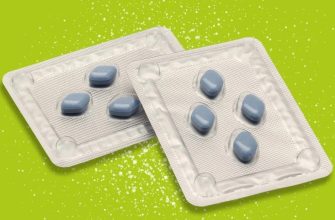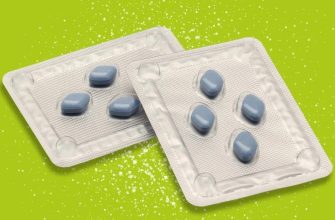Research suggests a potential link between Viagra and tinnitus, but the evidence remains inconclusive. Some users report experiencing ringing in the ears after taking sildenafil citrate, the active ingredient in Viagra, while others do not notice any changes in their auditory perception.
The majority of clinical studies focus on the safety and side effects of Viagra, yet anecdotal reports highlight occasional instances of tinnitus as a side effect. Healthcare professionals recommend monitoring any sudden changes in hearing after starting the medication and consulting with a doctor if these changes persist. This proactive approach can help ensure that any underlying issues are addressed promptly.
Interestingly, the mechanism of action for Viagra involves increased blood flow, which may affect various body systems, including the auditory pathways. While this doesn’t definitively establish a cause-and-effect relationship, it emphasizes the need for further research to clarify any connections between Viagra use and tinnitus.
If you are experiencing tinnitus and suspect that it may be related to Viagra, discuss your concerns with your healthcare provider. They can help evaluate your symptoms, adjust your treatment plan if necessary, and ensure that your overall well-being is prioritized.
- Does Viagra Cause Tinnitus?
- Understanding Tinnitus: Definition and Symptoms
- The Link Between Erectile Dysfunction and Tinnitus
- Mechanism of Action: How Viagra Works
- Pharmacokinetics
- Clinical Considerations
- Current Research on Viagra and Tinnitus
- Patient Experiences: Anecdotal Evidence of Tinnitus from Viagra Use
- Consulting Your Doctor: When to Discuss Concerns About Tinnitus
- Alternatives to Viagra for Erectile Dysfunction
- Pain Management Techniques
- Lifestyle Changes
- Preventative Measures: Managing Tinnitus and Erectile Dysfunction Together
- Healthy Lifestyle Choices
- Exercise Regularly
Does Viagra Cause Tinnitus?
Studies suggest that Viagra, or sildenafil, can contribute to tinnitus in some individuals. While not a common side effect, anecdotal reports indicate a potential link between the medication and the onset of ringing in the ears. Users often report experiencing tinnitus after beginning treatment with Viagra.
Physicians recommend monitoring any symptoms closely. If tinnitus develops or worsens after starting Viagra, consult a healthcare provider to evaluate the situation. It may be helpful to discuss alternative treatments for erectile dysfunction that do not have this potential side effect.
Research on this topic remains limited, so maintaining open communication with your doctor is advisable. Should you have pre-existing conditions or take other medications, these factors can also play a role in the emergence of tinnitus. Your healthcare provider can help identify any contributing factors and tailor a safe treatment plan.
If you experience significant discomfort or persistent tinnitus, it is crucial to address these symptoms. Audiological assessments might be recommended to better understand the cause and potential remedies while ensuring that erectile dysfunction management is not compromised.
Understanding Tinnitus: Definition and Symptoms
Tinnitus refers to the perception of sound when no external sound is present. This condition can manifest as ringing, buzzing, hissing, or clicking noises in the ears. Tinnitus can be temporary or chronic, affecting daily activities and quality of life.
Recognizing the symptoms is crucial for timely management. Common signs of tinnitus include:
- Ringing or buzzing in one or both ears
- Variations in sound intensity
- Difficulty concentrating or focusing due to noise
- Sleep disturbances caused by incessant sounds
Tinnitus can vary significantly from person to person. Some may experience a constant noise, while others may hear intermittent sounds. The perception of these sounds may change based on stress levels, fatigue, and overall health.
It’s vital to consult a healthcare professional if tinnitus persists. Understanding the underlying causes, such as hearing loss, ear infections, or exposure to loud noises, can help in developing an effective management plan.
Keeping a journal of symptoms and potential triggers can assist healthcare providers in diagnosing the condition with greater accuracy. Early intervention may lead to more effective management strategies, helping to alleviate the symptoms and improve the quality of life.
The Link Between Erectile Dysfunction and Tinnitus
Studies show a significant correlation between erectile dysfunction (ED) and tinnitus. This relationship may be attributed to common underlying factors such as vascular health, stress, and hormonal imbalances.
Both conditions can arise from poor blood circulation. Reduced blood flow affects not only sexual function but also hearing. Men with ED have reported increased instances of tinnitus symptoms, suggesting a shared vascular or neurological pathway. Addressing vascular health can improve both ED and tinnitus symptoms.
Stress and anxiety complicate these conditions. Psychological factors can contribute to both erectile issues and the perception of tinnitus. Managing stress through relaxation techniques or counseling is beneficial in alleviating both ED and tinnitus.
| Factors | Erectile Dysfunction | Tinnitus |
|---|---|---|
| Vascular Health | Poor circulation leads to reduced blood flow. | Noise perception may increase due to limited blood supply. |
| Stress Levels | Anxiety can impact sexual performance. | Heightened stress can amplify tinnitus symptoms. |
| Hormonal Balance | Testosterone levels affect libido and erectile function. | Hormonal fluctuations may contribute to perception of sound. |
For those experiencing both conditions, a holistic treatment plan is advisable. Consulting healthcare professionals who specialize in sexual health and audiology facilitates an integrated approach. Lifestyle changes, such as improved diet, regular exercise, and cessation of smoking, enhance overall well-being and potentially alleviate both ED and tinnitus.
Mechanism of Action: How Viagra Works
Viagra enhances blood flow to the penis, facilitating an erection when sexual stimulation occurs. It achieves this by inhibiting the enzyme phosphodiesterase type 5 (PDE5). Normally, when a man is sexually aroused, nitric oxide is released, leading to the production of cyclic guanosine monophosphate (cGMP). cGMP relaxes blood vessels, allowing increased blood flow into the penis. PDE5 breaks down cGMP, thus limiting its effects. By blocking PDE5, Viagra increases cGMP levels, enhancing and prolonging erections.
Pharmacokinetics
After oral administration, Viagra is rapidly absorbed, with peak plasma concentrations occurring within 30 to 120 minutes. The duration of action involves the medication being effective for up to four hours, though this can vary based on individual metabolism and health conditions. Food intake may influence its absorption rate; taking it on an empty stomach is advisable for quicker results.
Clinical Considerations
Users should consult healthcare professionals before using Viagra, especially if they have cardiovascular issues or are taking nitrates, as severe side effects may occur. Recognizing how Viagra works allows for informed discussions with medical providers about its appropriate use and potential interactions with other medications.
Current Research on Viagra and Tinnitus
Recent studies suggest a potential link between Viagra (sildenafil) and tinnitus. Some patients have reported tinnitus onset after starting the medication. However, findings remain inconclusive.
- Study Insights: A study published in the Journal of Otolaryngology indicated that a small percentage of users experienced tinnitus as a side effect. Researchers noted a need for further investigation.
- Mechanism of Action: Viagra increases blood flow by inhibiting the enzyme PDE5. Alterations in blood circulation could potentially affect auditory pathways.
- Population Studies: Research involving large populations is required to determine if a significant correlation exists. Some studies did not find a direct causative link between the drug and tinnitus.
While individual cases report tinnitus after taking Viagra, these instances remain rare. Health professionals recommend monitoring any ear-related symptoms if the medication is used.
- Patient Monitoring: Individuals using Viagra should report any onset of tinnitus to their healthcare provider for proper evaluation.
- Alternative Options: If users experience bothersome side effects, discussing alternatives with a provider is advisable.
Continued research is necessary to clarify the relationship between Viagra and tinnitus, ensuring users have accurate information for informed decisions.
Patient Experiences: Anecdotal Evidence of Tinnitus from Viagra Use
Some patients report experiencing tinnitus after using Viagra. They describe a sudden onset of ringing or buzzing in their ears following the ingestion of the medication. In several cases, this symptom developed within a few hours of taking Viagra, leading users to consider a direct connection.
One individual shared their experience on a health forum, stating, “After trying Viagra for the first time, I noticed a persistent ringing in my ears that lasted for days. It was alarming, and I had to consult my doctor.” This highlights the concern some users have regarding auditory side effects.
Another patient noted, “I didn’t have tinnitus before I started using Viagra. After a few doses, I couldn’t ignore the sound in my ears.” Such anecdotes suggest a potential link that users should take into account when considering this medication.
In contrast, other users did not experience any noticeable tinnitus or related symptoms. This variability may indicate that not everyone reacts the same way to the drug. Consider monitoring any changes in your hearing after taking Viagra, especially if you have a history of ear problems.
If you encounter tinnitus while using this medication, consulting a healthcare professional is advisable. They can help determine whether the symptom is related to Viagra or another underlying issue. Keeping a record of your experiences, drug dosages, and any related symptoms can assist in this evaluation.
While anecdotal evidence is not conclusive, it may guide individuals in making informed choices about their health and treatment options. If you experience auditory symptoms after taking Viagra, do not hesitate to discuss them with your doctor for personalized advice.
Consulting Your Doctor: When to Discuss Concerns About Tinnitus
If you experience persistent ringing or buzzing in your ears, schedule an appointment with your doctor. Early discussion about tinnitus can help determine the cause and appropriate treatment options. Inform your doctor about any recent changes in your health, medications, or lifestyle, including the use of Viagra.
Document your symptoms, including their frequency and severity. This information aids your doctor in making an accurate diagnosis. Share any associated symptoms, such as hearing loss or dizziness, as these details may indicate an underlying condition.
Ask about potential side effects of medications you currently take. Understanding the relationship between treatment and tinnitus can help address concerns effectively. If you suspect Viagra may be a contributing factor, express these concerns clearly during your consultation.
If tinnitus disrupts your daily life or sleep patterns, communicate this to your doctor. Effective management strategies are available to reduce the impact of tinnitus on your overall well-being. Discuss potential referrals to specialists, such as an audiologist or an ear, nose, and throat (ENT) doctor, if necessary.
Do not hesitate to seek a second opinion if you feel that your concerns are not being addressed. Your health is a priority, and understanding the cause of your tinnitus can lead to more effective management.
Alternatives to Viagra for Erectile Dysfunction
Consider oral medications such as Cialis (tadalafil) and Levitra (vardenafil). Both options work similarly to Viagra by increasing blood flow to the penis, helping achieve an erection. Cialis offers flexibility with a longer duration of action, lasting up to 36 hours, which allows for more spontaneous activity.
Pain Management Techniques
Explore penile injections or intraurethral therapy as a direct method for achieving an erection. Alprostadil is a common medication used in these treatments. Injections deliver the medication directly into the penis, while urethral suppositories provide an alternative for those uncomfortable with needles.
Lifestyle Changes
Adopting healthier lifestyle choices can significantly impact erectile dysfunction. Regular exercise improves blood circulation, while a balanced diet rich in fruits, vegetables, and whole grains supports overall vascular health. Reducing alcohol consumption and quitting smoking can also enhance erectile function.
Consider psychological counseling if emotional factors contribute to erectile dysfunction. Therapy can help address anxiety, depression, or relationship issues, leading to improved sexual performance.
For some, vacuum erection devices (VEDs) are practical. These devices create a vacuum around the penis, drawing blood in and causing an erection, which is maintained with a constriction ring.
Finally, discuss the option of penile implants with a healthcare professional. This surgical procedure can provide a permanent solution when other methods are not effective.
Preventative Measures: Managing Tinnitus and Erectile Dysfunction Together
Maintain open communication with healthcare providers to tailor a treatment plan addressing both tinnitus and erectile dysfunction. Regular consultations allow adjustments based on personal progress and medication responses.
Healthy Lifestyle Choices
Adopt a balanced diet rich in fruits, vegetables, whole grains, and lean proteins. Nutrient-dense foods can improve overall health and support blood circulation, beneficial for both conditions. Limit salt intake to manage tinnitus symptoms.
Exercise Regularly
Engage in physical activity at least 150 minutes a week. Exercise improves blood flow, reduces stress, and can positively impact erectile function and tinnitus severity. Activities like walking, swimming, or cycling can be easily incorporated into daily routines.
Consider relaxation techniques such as yoga or meditation. These practices can alleviate stress and anxiety, common triggers for both tinnitus and erectile dysfunction. Establishing a consistent routine helps enhance overall well-being.
Ensure adequate sleep. Quality rest supports mental clarity and physical health. Create a calming bedtime routine and limit screen time before sleeping to improve sleep quality and duration. Proper rest also plays a role in managing stress, which can influence both conditions.
Avoid tobacco and excessive alcohol. Both substances can exacerbate symptoms and negatively impact vascular health. Opt for moderation and seek alternatives to manage cravings effectively.
Explore alternative therapies like sound therapy or cognitive-behavioral therapy (CBT). These options can address tinnitus management and emotional well-being, potentially benefiting erectile function as well.
Stay informed about your medications. Research potential side effects and engage in discussions with your doctor about alternatives if a prescribed treatment aggravates your conditions.
Maintain routine health check-ups. Regular screenings can help identify underlying health issues that may contribute to both tinnitus and erectile dysfunction, allowing for early interventions.





